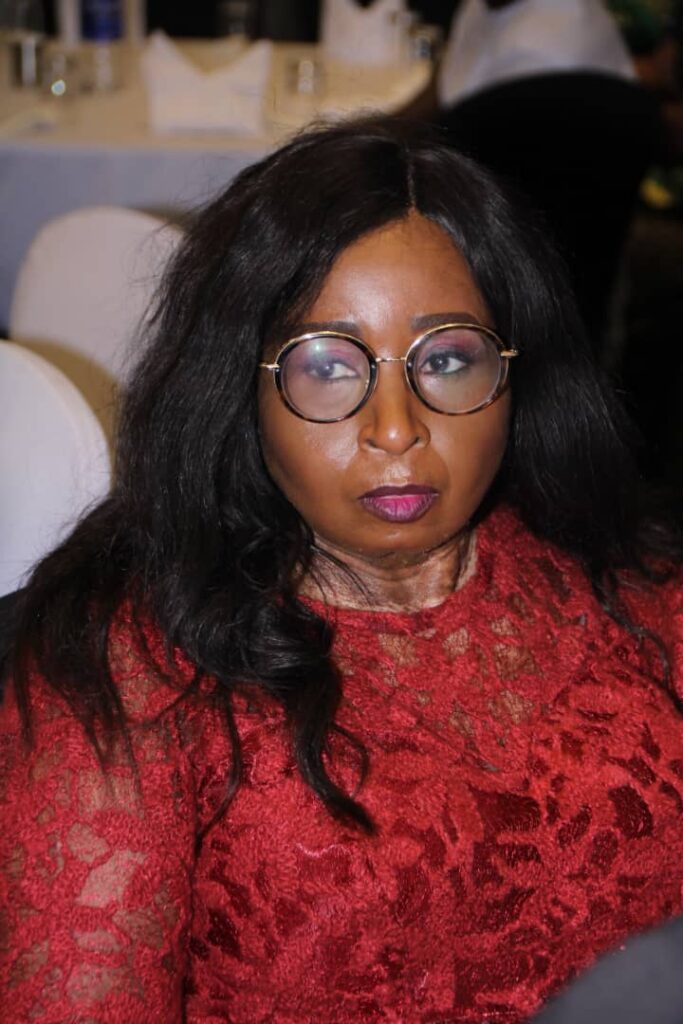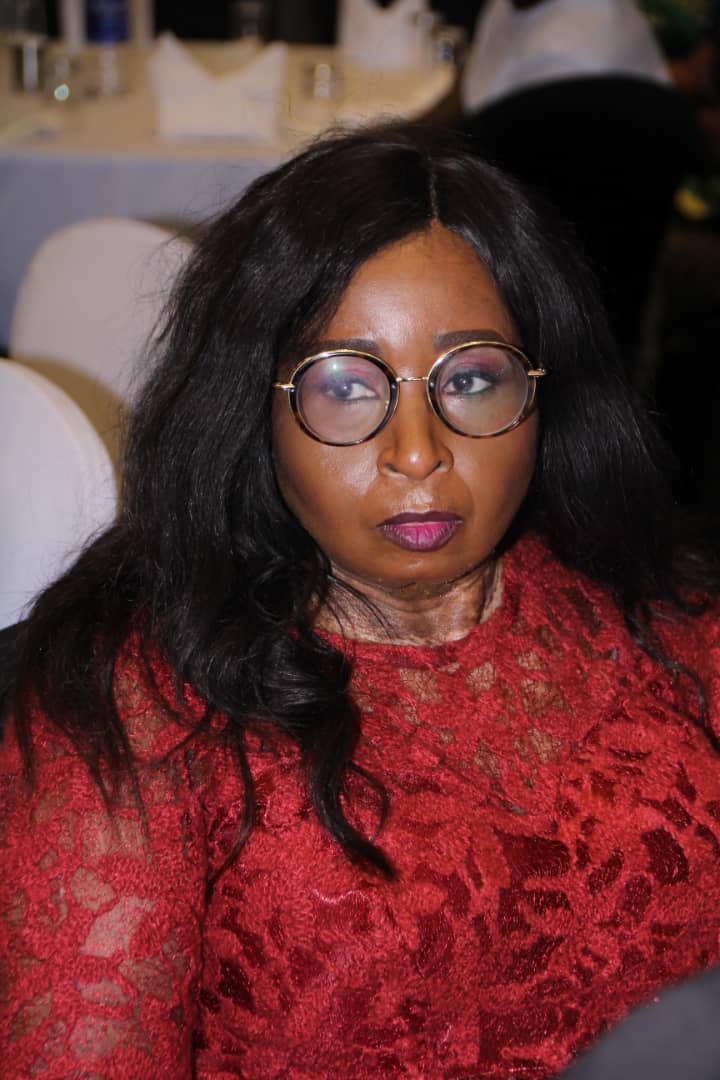By Tetsekela Anyiam-Osigwe

During this difficult time in our lives, we are involuntarily called, once again, to examine life in all its complexity. This moment implores us to remember that we are not all-knowing. It reminds us of the deep uncertainty that God tells us that we must confront on our early sojourns while having an unshakable faith in Him and the mystery of our existence: the uncertainty of who we are and what we are, of what we know and what we do not know, of why we are here and what we are here for; the uncertainty of what we leave behind and why we leave those things behind.
Two things were deemed the most important to Peace Marie Ogechi Anyiam-Osigwe (PMO) and she would tell anyone this freely: family and being the undiluted creative pushing for Africa to be fully recognised in the global film industry. Both saw her give more than herself, even and especially at the expense of herself. She leaves both behind, perhaps with the knowledge that only God and now she has, of God’s own plan for the manifestation of His glory within those she loved and the legacy she so earnestly and faithfully crafted.
For her, family was and remains her father’s greatest legacy to her. In a predominantly patriarchal society, Papa made her believe it was not about gender but about personality and carriage. Even in the midst of seven older brothers, she found herself standing on an equal footing. She never felt small or inferior. If anything, she was rightly emboldened to cement her place as an irreplaceable member of the family, becoming a mother, an aunt and a positive change agent cultivating a deeper sense of togetherness.
The only thing that equalled her commitment to family was her passion for the film industry. More than anyone else, she promoted the creative industry not only in Nigeria, but also in Africa. Last year, she celebrated nearly four decades within this industry. She remained at the forefront of the process of expanding the business of film in Africa and making the industry a major contributor to the national economies of African countries and a global player on the world stage. As one of the African film industry’s leading lights, she cultivated the next generation of African film makers while rewarding the current generation of filmmakers across the country, the continent and the diaspora, who, in many ways, had started this journey with her. Several national and pan-continental programs and initiatives were created with her at the helm; consciously, productively and constructively bridging the divide between African filmmaking communities and the rest of the global marketplace.
She did not just do one thing, but did it all: CEO and Founder of the African Movie Academy Awards (AMAA), Founder and Chair of the African Film Academy (AFA), President of the Association of Movie Producers of Nigeria, a Nigerian national honour recipient as a Member of the Order of the Federal Republic (MFR), a former financial director of the Filmmakers Cooperative of Nigeria (FCON), a past Vice President of the Association of Movie Producers of Nigeria, a TED Fellow, a jury member of international film festivals, a former Creative Director and Co-founder of the Africa International Film Festival, a published poet with three books to her name, a former television talk show host, the owner of a publishing company, the owner of a film studio, and a producer and a director of multiple Nollywood films.
Despite everything she had going on personally that could and would have stopped any other person, she relentlessly maintained her unyielding commitment to the creative industry. In a given year, she might have had to be in Berlin, then would go on to receive an award in California, then make a speech in Washington D.C, fly to Kigali to make yet another speech before finding herself on a flight back to Lagos to meet with her home-based team. This was, in many ways, her breakdown point, but she wanted to, and she did, continue. She often said she could not stop; that the work was not complete. Indeed, she was the personification of resilience. Perhaps most importantly, she simply wanted to do it for African cinema. It was not about her individually. It was not even about the money. It was about the passion to promote and celebrate creative excellence in Africa. With every opportunity, she was speaking to anyone who would listen about the potential for African cinema to be a creative heavyweight in the world.
She never knew, until she began this journey, that her body could generate a much-needed extra supply of energy as far as she was doing exactly what she was passionate about. This is why we cannot even begin the process of fully comprehending her immense contribution to her community, the country, the continent, and the world at large, which produced an unrivalled legacy of accomplishments globally and within the creative industry for nearly four decades.
One might never know what she was going through internally because her strength knew no possible bounds. In many ways, this is why her transcendence is too difficult to understand, but perhaps this is also why, as difficult as it may be, she would implore us to try to accept the unthinkable. Perhaps there are some things, the knowledge of which are reserved for those blessed and privileged enough to attain perfect alignment with the Chi and ultimately reach a divine and conscious unity with God.
Therefore, it is the case that we must be resolved, and never resigned, armed with the belief that earthly life in all its perplexity will always be a complex phenomenon in which the puzzle is never meant to be solved by those left behind. Yet, to the degree that we are assured in the divine knowledge that there is indeed a Supreme Being who governs the universe, we should remain hopeful in the knowledge that “Ogechikamma,” it is God’s time that is the best.
When I had to give her an answer about life over ten years ago at such a naive age, I said this in part: Life is a string of moments. Actions define moments. Decisions define actions. Character defines decisions. Personality defines character. And death is outlived by personality. It is not until now that I am realising why she told me that she held onto that so deeply. She willingly surrendered to God’s will in everything, letting Him drive her moments, mediate her actions, guide her decisions, shape her character, and direct her personality. When the time came for Him to decide to bring back his daughter into His heavenly presence, she knew that those she was going to leave behind will eventually understand that as far as God remained at the wheel of earthly life, death was only transitory. It was another moment, orchestrated by God, in the long string of moments that define life. Indeed, Ogechikamma, it is God’s time that is the best.
She fiercely believed that there was a Chi in everyone – that God manifests Himself within man, so that man was blessed with the presence of God within himself. She believed that the Chi brings hope and that the Chi controls human destiny. She said it was evident even in her name, “Ogechi.” So, even if we might like to have things done at our own time, even if we do not understand our present reality, even if we struggle to comprehend the ‘why’ and we fail to make sense of the ‘how,’ we must be reminded that it is always subject to the will of each individual’s Chi. And, in our asking God of the why, in our need to understand this ultimate test from the Chi of the universe, perhaps the answer is not for us to know exactly. Even if it is hard, we cannot question anymore. In her own words, the Chi never promised an easy ride. The Chi never said to us that life is going to be easy; what the Chi did say to us was that this is what we have at the moment. Deal with it, cope with it, and in time, we will come to understand it, knowing full well that Ogechikamma, it is God’s time that is the best.
May the Chi be with her as she begins her eternal journey, shining always in the light of God’s everlasting presence. May God, in this everlasting presence, hold her closely as she dwells forever in His heavenly place. May God, in His infinite mercy and bountiful love, also give us all – her children, her family, her friends, and her colleagues – the strength we need during this very difficult period. Beyond it, may He find us worthy enough to receive the blessing of the divine knowledge and complete acceptance that truly Ogechikamma, it is God’s time that is the best.
-Tetsekela Michael Anyiam-Osigwe is a PhD student at Princeton University in United States
